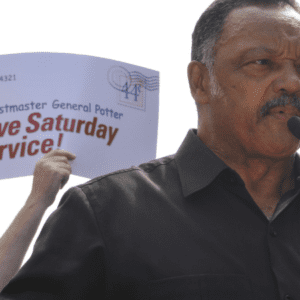March 1, 2017
Pro-Privatization Groups Continue Attacks on Public Postal Service
(This article first appeared in the March-April 2017 issue of The American Postal Worker magazine.)
Like clockwork, when USPS finances are announced each quarter headline after headline claim the Postal Service is irrelevant, in financial trouble or a monopoly that needs breaking up. These critics compare the USPS financial situation to the sinking of the Titanic. They say the USPS should remember its core mission is to deliver the mail, not expand services. They also say the USPS needs business-savvy leaders on its Board of Governors.
Time and again, the APWU, our sister postal unions and A Grand Alliance to Save Our Public Postal Service respond to the attacks with the facts. Those facts include the explosion in package delivery making the Postal Service even more relevant in the digital age, the three consecutive years the Postal Service operated at a profit (excluding non-cash transactions), the Congressionally-manufactured financial crisis and the obligation to universal service.
So who are these “experts” and the groups they represent? Why do they not have anything nice to say about the public Postal Service? After all, it is the most well-liked and trusted of all federal agencies.
One frequent commentator, Brian McNicoll, is a former senior writer for The Heritage Foundation, an organization that has a long history of turning out reports and analysis advocating a privatized Postal Service. The group is funded by multi-million dollar corporations. One of their donors, UPS, has contributed hundreds of thousands of dollars over the years.
Privatization advocates are on their way to being major players in the new Congress and Presidential administration. According to In the Public Interest, A Grand Alliance signatory, at least 32 members of the transition team or nominees for top agencies either have ties to pro-privatization groups or expressed their support for privatization. One transition team member is former Heritage Foundation President Ed Feulner, who, as early as 2000, wrote against the postal “monopoly.”
As David Dayen in The Nation reports, if pro-privatization policies take hold “America’s schools, roads, air-traffic-control systems, prisons, immigrant-detention centers, and critical social-insurance programs will soon fall into private hands.”
Warning from Royal Mail
To anticipate what postal privatization might bring to the United States, we need look no further than Britain’s venerable Royal Mail. Three years after the British Post Office was split from Royal Mail, the result is the loss of 13,000 jobs, the shuttering of 20 percent of delivery offices, increased workloads and threats to the pension fund.
“It’s sad to say, but the story of Royal Mail’s privatization is a story of our times: the loss of democratic control; the transfer of wealth and power to the richest in society; and the growing pressure on working people to work harder,” said Clive Lewis, Labour MP (Member of Parliament).
Where to Go from Here
“Privatization, or corporatization, of our public services, including postal services, means lower wages and benefits for workers,” said President Dimondstein. “Our communities suffer as well. Services are diminished or eliminated, and a ripple effect negatively impacts local economies.”
The influence of pro-privatization groups like the Heritage Foundation, R Street Institute and the Cato Institute on our politicians is growing. Many cabinet picks support handing over control of the public good to private corporations. It is more important than ever for A Grand Alliance to join with and organize our allies to beat back the privatization push and keep the Postal Service in the hands of the people.



